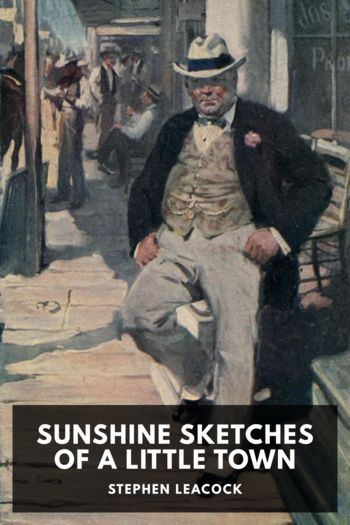Low Country, J. Jones [top 10 best books of all time .TXT] 📗

- Author: J. Jones
Book online «Low Country, J. Jones [top 10 best books of all time .TXT] 📗». Author J. Jones
Chris must have been only thirteen when he was kicked out of the only place he’d really ever called home, however unwelcoming half the household had been. Nana took Chris and his younger brother, Brian, to school, fed them, checked their homework, and made sure their favorite cookies were kept in the house, generally acting as maternal as possible after their own mother was swindled out of custody. Nana was the only stable, loving presence for them there, and as one of the many ways Granddaddy would belittle her daily in our collective presence, he made a show of telling my cousins how worthless they were. “They won’t amount to nothin’, Jackie, why waste your time and my money on them?” he asked, even though it was his machinations that brought them into his house. He never bothered to hide his hatred for whatever he decided deserved his ire, and as extensions of the son he hated, Chris and Brian were easy targets. The gist of the refrain changed little, except occasionally that he raised a hand to her or one of us, or called her names. And yet we had all grown so used to this; the heaviness of my memory of this particular incident is my own teenage sadness at being by then only a visitor for these scenes and knowing that I’d never know the true extent of their torture. We’d just moved away, to Charlotte, and so my brothers and I were visitors ourselves.
Granddaddy’s violence needed no provocation. At thirteen, Chris was a young man in need of recognition and a child in need of attention. He was smart and caring enough to take the heat off his grandmother, who defended him daily at her own expense. On this evening in my memory, I sat at the kitchen table in front of her coffee maker and next to the decorative stained-glass hands in prayer. Whose hands were they, I still wonder. Jesus’s? Suddenly, Chris and Granddaddy were screaming at each other in the doorway between the living room and the long, dark hallway. It’s a scene that I can rewind to watch over and over, and though it is mercifully muted, I would prefer to reclaim the space and forget it altogether. I can feel the distress of my nana, which burns my skin worse than a sunburn. She moves to intervene and then stops. Chris was a star player on the school baseball team then, and Granddaddy picked up his baseball bat. The moment of wondering if he will actually use it lasts as long as the rest of the memory. Chris took off running down the hallway, and we all jumped up and ran after them. Having reached the end of the hallway, Chris turned around. Something in him changed or else he had nowhere to go. He reached out and took the bat from Granddaddy’s hand. Here again history has repeated itself as unfailingly as a chorus. Granddaddy had been in nearly the same position before, nearly in that exact spot some twenty years before, when his two younger teenage sons, Dad and Les, caught his arms on their way down to Nana’s back and told him, “Never again.” At least, not in front of them.
If I were a scientist or a believer, I might posit the existence of a black hole at the end of that hallway. Nothing so fancy as time travel or teleportation, but it was as if I were watching both scenes play out at once and caught a flicker of intergenerational déjà vu across my cousin’s face that gave him the strength to say, “Never again.” My mind is not so superstitious as some, but there are indisputable events that appear before you plain as day, no matter how much you wish they wouldn’t. Granddaddy shoved him aside and locked himself in his bedroom, and Chris stalked the hallway, smashing the glass in every family picture and the embroidered “Serenity Prayer,” leaving a trail of blood and broken glass but taking the baseball bat with him and leaving the house for good.
Granddaddy forbade Chris entry to the house, and though Nana would sneak him in and offer him whatever she could, the fear of being discovered kept their visits short and fraught. His moment of casting off his bruised childhood was surely as freeing as it was terrifying, but it also bound Chris even closer to his captor. That spark of rage that festered into hatred was now given free rein to rot away at his own insides. He went to live with Uncle Les and Ralph Howard for a time. He lived with his mother on and off, and between corners and shelters. Nobody knew it until it was too late, but he was already buying his own white powders, first the same crushed-up pills and cocaine his father preferred, and then heroin. What else but opium to dull both pain and hatred, while giving yourself more of each with every hit.
I once described Nana and Granddaddy, when asked by a boyfriend’s parents about my family history, as “high school sweethearts.” I was caught off-guard, and they had indeed gone to school together, meeting for dates at the Pavilion and the boardwalk, dancing the shag on Ocean Boulevard as kids. More out of panic than deceit, I wanted to be liked and welcomed into a family whose uncomplicated affection I wanted to know better. “Yeah, real sweet,” said the guy I was going out with, whom I’d met at our fancy New York college. He gave me the same disbelieving face





Comments (0)